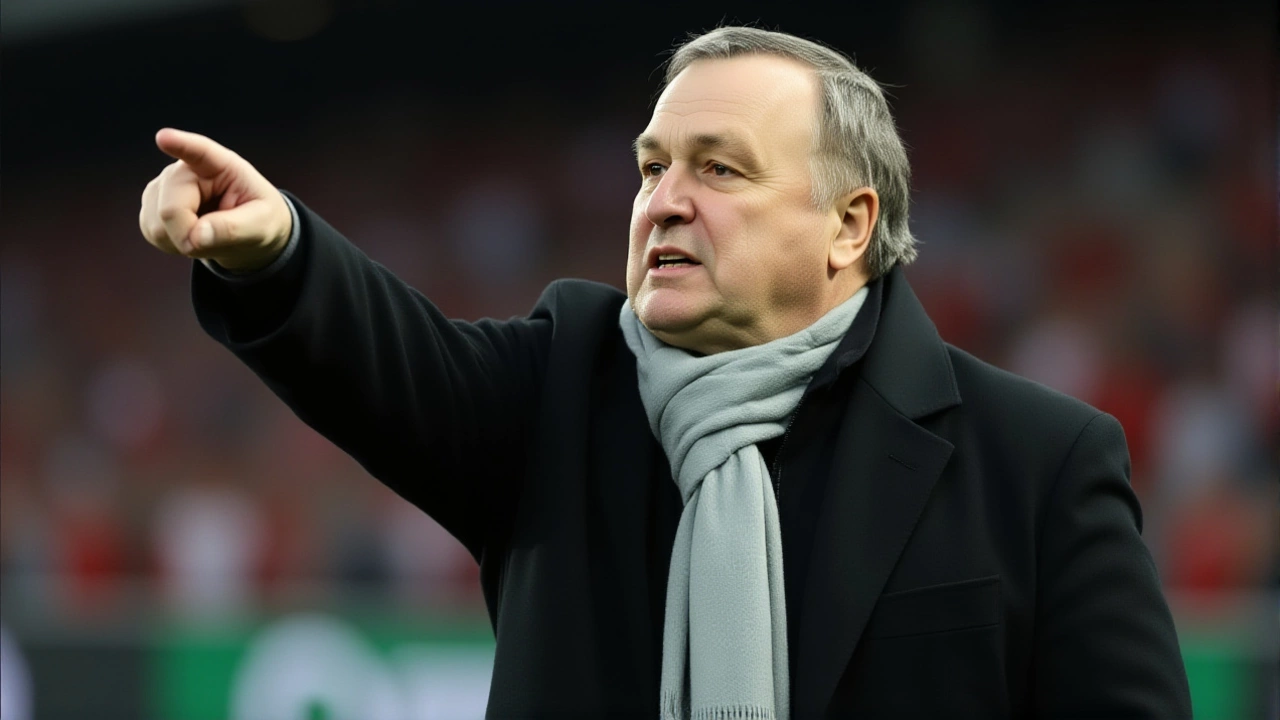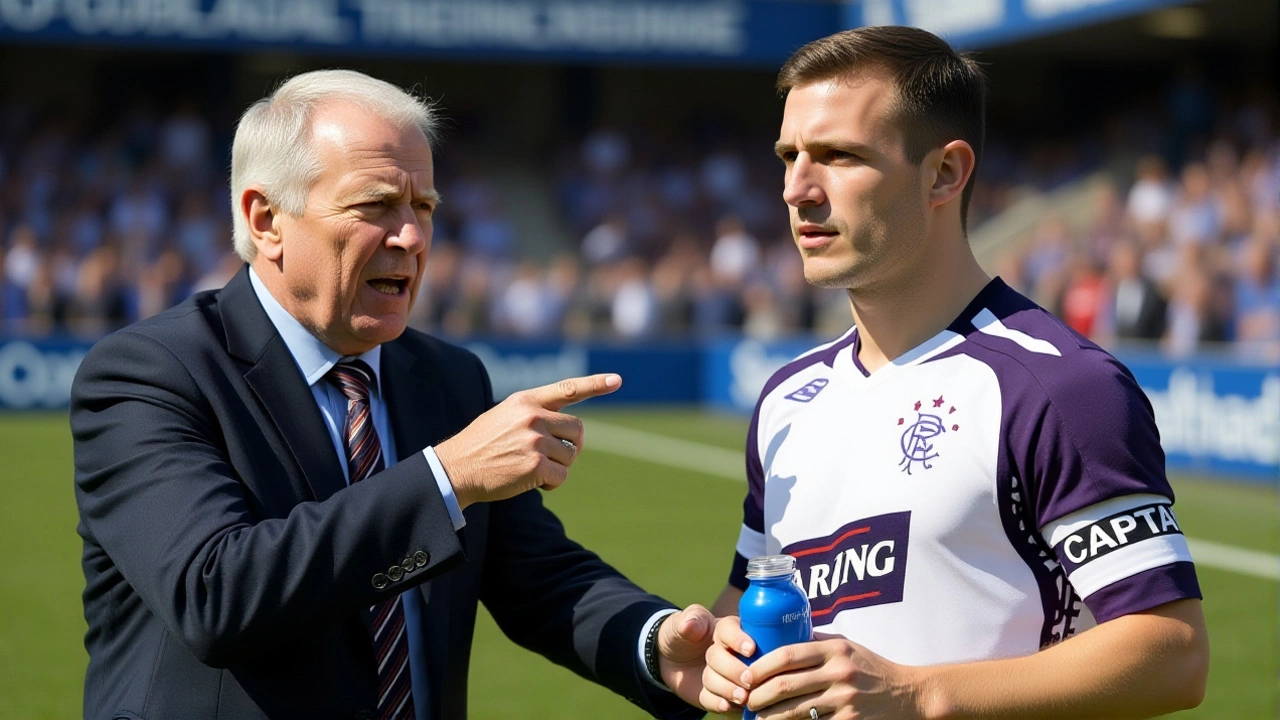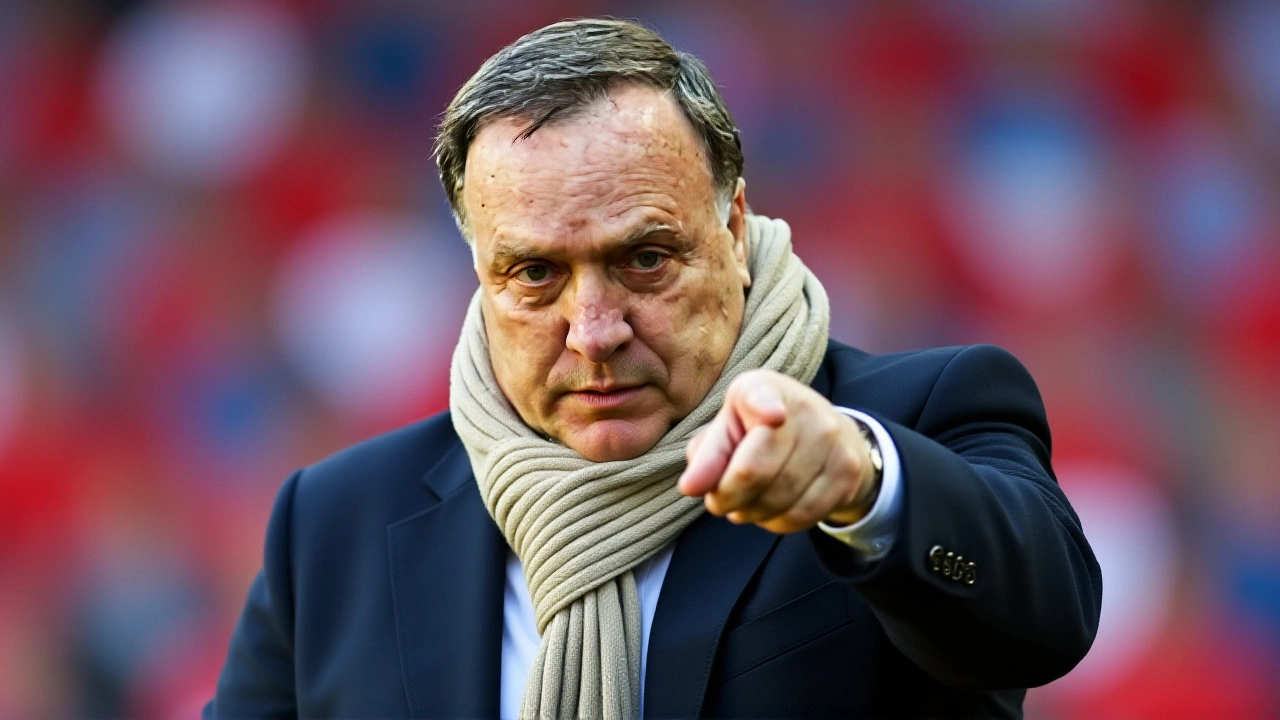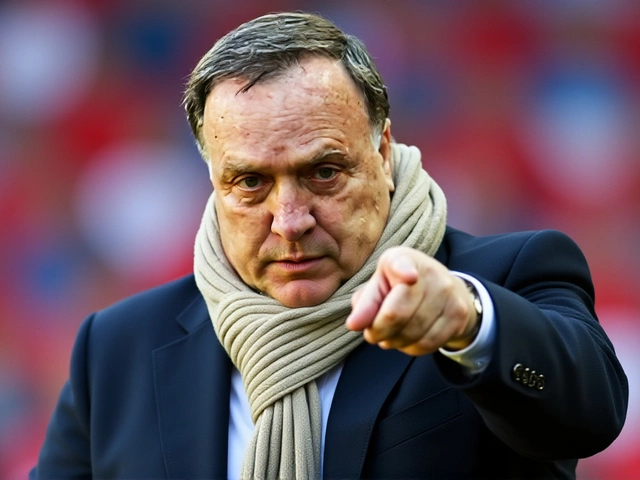When Sunderland fans learned their manager, Dick Advocaat, had decided to stay on beyond his short-term contract, they didn’t just cheer—they acted. What began as a modest £150 campaign to buy flowers for his wife, Trudy Advocaat, exploded into a heartfelt outpouring of support that raised over £2,000. The gesture, organized through GoFundMe and reported by Bleacher Report, wasn’t just about flowers. It was about gratitude—for loyalty, for stability, for a man who chose to stay when others might have walked away.
A Gesture Born in Gratitude
On November 25, 2015, Dick Advocaat, then 68 and managing the struggling Sunderland Association Football Club in the Premier League, surprised fans by extending his stay. He’d been brought in on a temporary basis to steer the team clear of relegation, but with the club hovering just above the drop zone, his calm authority resonated. Fans didn’t just see a manager—they saw a steadying hand in turbulent waters. So, someone, somewhere, started a GoFundMe page with the simple goal: “Buy Mrs. Advocaat a nice bouquet.”
That’s all it said. No names. No fanfare. Just a quiet, sincere idea. But the response? It was seismic. Within days, donations poured in from across the UK, the Netherlands, even Australia. By the time the campaign closed, it had collected more than thirteen times its target. Over £1,850 in surplus. No one knew exactly how many people gave. No one knew who started it. But everyone who saw it understood.
The Unspoken Language of Football Loyalty
Football fans don’t often buy flowers for managers’ wives. But they do remember who stays. Who doesn’t bail when the pressure mounts. Who shows up in the rain, the mud, the 1-0 losses. Advocaat, a Dutchman with a no-nonsense demeanor and a career spanning decades—from PSV to the Netherlands national team—wasn’t flashy. He didn’t give press conferences full of fireworks. But he did his job. And Sunderland fans, a community shaped by steel, shipyards, and resilience, recognized that.
It’s a tradition, oddly enough, that’s rare in modern football. In an era of managerial carousel turnover—where coaches are hired and fired like temp workers—Advocaat’s decision to remain felt like a promise kept. And fans, in their own quiet way, kept their promise back.

What Happened to the Money? The Silence After the Storm
Here’s the odd part: no one ever confirmed what happened next.
The GoFundMe page vanished. No official statement came from Sunderland AFC. No photo of Trudy Advocaat holding flowers surfaced. No florist in Sunderland was named. The campaign organizers never spoke to the press. And while the money was clearly raised, the delivery, the bouquet, the moment of thanks—none of it was documented.
Some speculate the funds were used to buy a larger, more meaningful gift—a piece of art, a weekend getaway, even a donation to a local charity in Trudy’s name. Others believe the fans simply wanted the act to be its own reward. No publicity. No headlines. Just a quiet thank-you, delivered in private.
Why This Matters Beyond Sunderland
This wasn’t just a feel-good story. It was a rare moment when football’s commercial machine paused—and humanity stepped in.
At a time when clubs are more concerned with social media metrics than soul, when managers are judged by win percentages alone, Sunderland fans reminded everyone that loyalty isn’t transactional. It’s emotional. It’s personal. And sometimes, it’s expressed through a single bouquet of flowers—worth far more than the price tag.
Compare this to other clubs: when Pep Guardiola left Barcelona in 2012, fans threw scarves on the pitch. When Sir Alex Ferguson retired at Manchester United, the entire city turned out. But few moments matched the quiet, unassuming power of this one: ordinary people, pooling their change, not for a player, not for a trophy—but for the wife of a man who chose to stay.

What’s Next for Advocaat and Sunderland?
Dick Advocaat left Sunderland in May 2016, after securing Premier League survival. He later returned to manage the Netherlands national team and now coaches in South Korea. Trudy Advocaat, a private figure, has never spoken publicly about the campaign.
As for Sunderland? The club descended into financial turmoil after relegation in 2017, went through multiple owners, and nearly collapsed. Yet fans still gather at the Stadium of Light, still sing the same chants. And every now and then, someone brings up that winter in 2015—the time they raised £2,000 for a bouquet, and never asked for anything in return.
Frequently Asked Questions
Who started the GoFundMe campaign for Trudy Advocaat?
The identity of the campaign creator remains unknown. No names were disclosed on the GoFundMe page, and no organizer has come forward since. It was an anonymous act of collective appreciation, typical of Sunderland’s grassroots fan culture—where gestures are made for the right reasons, not for recognition.
Did Dick or Trudy Advocaat respond to the donation?
Neither Dick nor Trudy Advocaat made any public statement about the campaign. Sunderland AFC also remained silent. This silence may have been intentional—a reflection of Advocaat’s low-key personality and the fans’ desire to keep the gesture personal, not performative. Private thanks, after all, are often the most meaningful.
What kind of flowers were intended for Trudy Advocaat?
The original GoFundMe page didn’t specify flower types. Given Trudy’s Dutch background and the season (late November), it’s likely the plan was for winter blooms—such as amaryllis, hellebores, or red roses—common in Dutch floral traditions. With £2,000, the bouquet could have been lavish: possibly a mix of seasonal blooms, wrapped in elegant paper, and delivered with a handwritten note from the fans.
Why did fans raise so much more than £150?
The £150 goal was never meant to be the final number—it was a symbolic starting point. Once the story spread through fan forums and social media, people saw it as an opportunity to honor Advocaat’s commitment. Many donated £10, £20, even £50. For some, it was a way to say, “We see you.” The money became a collective sigh of relief: a manager who stayed, a club that mattered, and fans who refused to let that go unnoticed.
Is this the first time football fans have raised money for a manager’s family?
Not exactly, but it’s exceptionally rare. In 2004, West Ham fans raised funds for the family of manager Alan Curbishley after his wife’s illness. In 2010, fans of a lower-league Dutch club donated to the child of their coach. But few reached this scale without media orchestration. What made Sunderland’s gesture unique was its spontaneity, its lack of fanfare, and its emotional purity—no PR team, no sponsors, just people who cared.
What happened to the surplus funds after the bouquet was bought?
The fate of the surplus—over £1,850—is unknown. The GoFundMe page was taken down without disclosure. It’s possible the organizers used the extra to cover delivery costs, purchase a more substantial gift, or even donated the remainder to a local children’s hospital or Sunderland’s youth academy. Without confirmation, the mystery remains part of the story’s charm: some gestures are meant to be felt, not accounted for.




